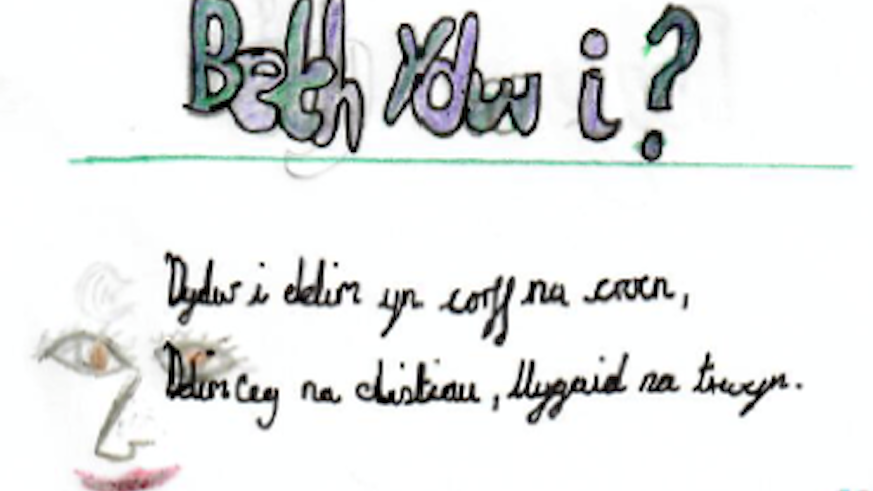Bridging immunology and philosophy
15 Gorffennaf 2016

Systems Immunity URI holds workshops at a Welsh medium primary school centred on the immunological, biological and philosophical aspects of personal identity and selfhood.
The concept of self is fundamental to our understanding and our definition as human beings. The questions “Who am I?” and “What am I?” (“Pwy ydw i? Beth ydw i?” in Welsh) are arguably amongst the oldest questions of humankind. Self can be defined both in a philosophical and immunological sense, raising the interesting possibility of combining both aspects in an interdisciplinary setting.


Supported by a Systems Immunity URI engagement grant, the philosopher and Lay Faculty member, Dr Lewis Evans, and the Systems Immunity researcher, Prof Awen Gallimore, developed an interactive workshop for year 5 children, where basic immunological ideas of self/non-self recognition by the immune system were introduced and discussed.
- Does my body “know” what bits are part of it, and what bits are not?
- How many bugs live on our bodies?
- Why are some bugs good whilst others are bad, and how do we discriminate between them?
- Why does the body reject some “foreign” organisms and accept others?
This was discussed in the context of infection, symbiosis with skin and gut microbes, and organ transplantation and artificial limbs. This scientific framework then served as a springboard for philosophical enquiries into the open-ended question of "What makes me ‘me’?"
- I am a living thing, but what does that mean?
- Am I the same thing as my body?
- How much of my identity is made up of psychological elements?
- If my body changes (e.g. as a result of a heart transplant), will I remain the same person?
These workshops were held at Ysgol Gymraeg Pwll Coch, a Welsh medium primary school in Cardiff.
From the work on bacteria, the children learnt about the existence of the world of the very small, and realised that there are living things around and on us that cannot be seen with the naked eye. From the philosophy discussions they learnt that not all questions can be easily answered, and that there are many aspects of ourselves and the world in which we live that we still do not fully understand.
Not only did the Year 5 children discuss concepts of life, being a human being, being a particular human being, immune response to infection, tissue rejection and symbiosis with microbiota - they did so bilingually through the medium of English and Welsh. The children also prepared a special assembly about what they had learnt, with sketches, songs and readings, which was then presented to Years 3, 4 and 6.
In accordance with Welsh Government policies and the “big data” remit of the Systems Immunity URI this workshop also provided an excellent platform to practice numeracy such as through estimations of the number of germs in our bodies (compared to the number of cells) and the number of immune cells patrolling our blood.
"The sessions were a welcome and enjoyable interlude from the usual constraints of the primary curriculum and provided the children with experiences that went beyond those of their average day in the classroom. The children were excited and intrigued by the ideas discussed during the workshops; so much so that several weeks later we were still discussing questions such as Can you change your personality?, Do we really have souls? and watching YouTube videos of people with bionic arms"